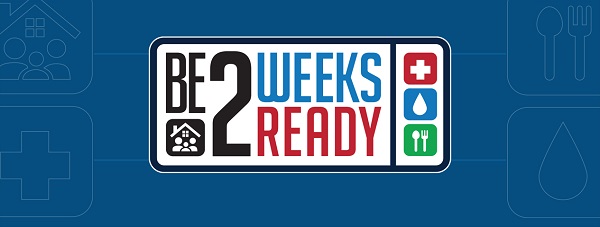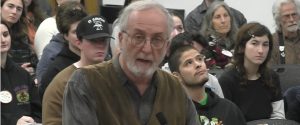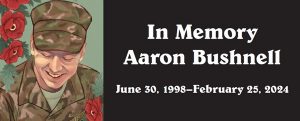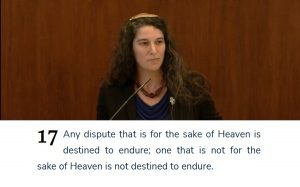Preparedness groups introduce ‘Be 2 Weeks Ready’ in Eugene Jan. 16
5 min read
Presenter: Deadly wildfires in California underscore the importance of personal, family, and neighborhood preparedness. Eugene volunteers are organizing an introduction to a new state program called Be 2 Weeks Ready. From Bethel, Dawn Scott:
Dawn Scott: I think we have a lot of issues with weather concerns and fires in California and in our area. I haven’t lived any place recently where there wasn’t some kind of a threat—it’s everywhere. And, of course, earthquakes are always an issue, ongoing, because of the Cascadia Subduction Zone. So many reasons to start thinking more aggressively about emergency preparedness.
[00:00:37] Presenter: On Thursday, Jan. 16, she will help introduce the program in a Zoom session that starts at 7 p.m. Dawn Scott:
[00:00:45] Dawn Scott: It’s a survey of the entire ‘Be 2 Weeks Ready’ program and the materials that they’ve made available. So you can decide how to get involved, and who’s in Eugene to push that program out, to develop that program.
[00:00:56] I live in a 55+ community here in West Eugene and the Bethel area, and they had been asking us to do some emergency prep. I think a few of them have kids and grandkids that live on the Oregon Coast and they’re really keyed into the threats of the earthquake, Cascadia, and generally just wanted to know how to get the water and how to get the food and things like that. So I had a real good response. I was very happy with that response and I’ve trained a couple of sessions now.
[00:01:30] The program is available from the state of Oregon Emergency Management. It is composed of eight units and 30 accompanying activities such as preparing an emergency contact list, and some more serious stuff that you would actually put into a go bag and have ready, in the cases like an LA where the people are actually—they’re evacuating. I’m watching the video footage from that and they said we didn’t have our documents ready etc. We’re going to have insurance claims and we don’t have any of that stuff. So we include all of those things in this kind of training.
[00:02:07] Presenter: Each individual, family, or community group can focus on specific units based on interest. For example: What if we can’t use our indoor plumbing? From Active Bethel Community, Dawn Scott.
[00:02:19] Dawn Scott: The Hygiene unit, they do talk about everything from washing your hands to whatever. I mean, there is a possibility in an extreme disaster that we might lose our water. And so that is a possibility to address alternative solutions to flushing toilets and running water and so on. Pretty dramatic disaster, but it’s good to have wrapped your head around that concept, thought about it. And so, yeah, there is a chapter on doing that. And we address that as one of the eight units, is the Hygiene unit.
[00:02:53] We’re asking for eight, probably one-hour units. It could be done, perhaps, in less time. But then there’s 30 accompanying activities, everything from preparing an emergency contact list to building a solar pizza oven.
[00:03:07] We do a lot of potlucks in our neighborhood. We might do the pizza oven exercise. And I’m thinking I might get some pizza boxes donated and some tinfoil. And we could do a pizza oven thing and make our own pizzas on a nice sunny day. So lots of fun activities, interesting, fun—some are group activities, some are individual activities.
[00:03:28] So a wide range of fun things you can do or interesting things to add in to the basic core eight units program.
[00:03:36] The state has done a great job of organizing this material. They have it in many different languages available. With all the activities, it’s really set up for any community group. It doesn’t have to be a neighborhood, although that is wise, to organize your neighbors.
[00:03:54] But it also includes the opportunity to do this in a church group or a work group or a school group, ‘any community,’ as they describe it.
[00:04:03] And they recently added an entire series of sign language videos as well. So if people are hard of hearing, or just want to listen to the sections of the toolkit, they’re hearing the reading of it, and they’re also seeing the ASL hand interpretation of it. So they’re trying to reach as many people with as many languages and needs as possible. I think they’ve done a wonderful job on it
[00:04:29] Presenter: The speakers Thursday night include Kayla Thompson and Uli Reich. Event organizer Dawn Scott:
[00:04:34] Dawn Scott: Kayla Thompson is the person who’s organizing the program at the state level, the state of Oregon Office of Emergency Management, and she’s the person who’s helping us receive the materials, receive updates, and so on, and helping us find people to do the training and deliver good content to our communities. And she’ll be reviewing the eight units and what they are and kind of a quick overview of what the eight units are.
[00:05:06] And then Uli Reich from Woodburn Fire Department and a leader of the Woodburn CERT which stands for Community Emergency Response Team, so he has been doing the training and he’s going to let us know how the ‘Be 2 Weeks Ready’ training has worked for him in Woodburn.
[00:05:23] Presenter: Here in Eugene / Springfield, multiple preparedness teams are working together to introduce the program to community groups. The program defines two helper roles. Dawn Scott:
[00:05:34] Dawn Scott: There’s a host which might be called a facilitator, might be called a trainer in other realms. And those people are the people that are actually going to be working in the classroom-type setting and facilitating the training. They have a whole host manual where they, for each unit, they have suggested questions to start the unit with, to involve people interactively, in establishing some rapport within their thinking, and so on.
[00:06:03] And then the coordinator—helping the hosts become successful—the coordinator for ‘Be 2 Weeks Ready’ has taken a four-hour training session from Kayla. That’s what she asks you to do to be a coordinator. And they are charged with publicizing the event like we’re doing here today, publicizing the program, and finding hosts, helping the hosts.
[00:06:27] So it’s really well designed. I was a professional trainer at one point before I retired and they’ve done a really wonderful job of getting people materials to make them comfortable being a host and/or a coordinator. They have a separate coordinator manual, a separate host manual, and then we’ll be walking them through that.
[00:06:47] Co-sponsors for this event are Ready NW Eugene, which is a collaborative of three Northwest Eugene neighborhoods, that being Bethel, Santa Clara, and River Road. And our gmail, if you live in that area and want to reach out to a collaborative group of emergency preparedness people, our email is ReadyNWEugene@gmail.com.
[00:07:19] Presenter: An introduction to ‘Be 2 Weeks Ready’ this Thursday, Jan. 16. Dawn Scott and Ready NW Eugene are co-sponsoring the event with the Eugene Neighborhoods’ Preparedness Network. For more, see the Facebook page or contact your neighborhood association.




